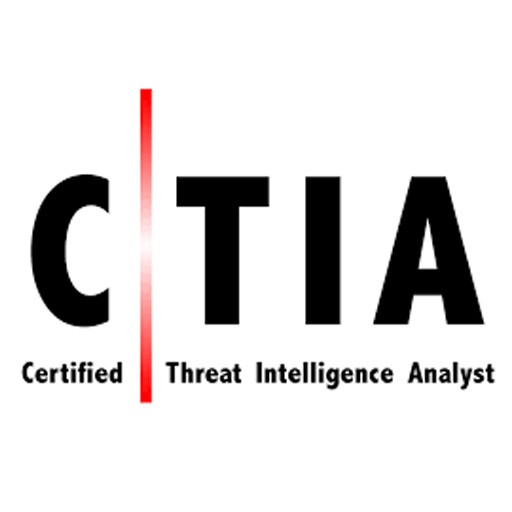Course Description & Overview
SecureNinja’s Certified Threat Intelligence Analyst (CTIA) training and certification boot camp is designed and developed by cybersecurity and threat intelligence experts from across the world and provides information on how to properly identify and mitigate cyber threats in an organization. In the ever-changing cyber threat landscape, CTIA is an essential certification for anyone who is dealing with cyber threats on a daily basis. Organizations can benefit from a CTIA because they will be able to identify different risks and vulnerabilities, be proficient in data analysis and collection, and be able to combat modern-day cyber-attacks. The CTIA is a method-driven program that uses a holistic approach, coring concepts such as planning a threat intelligence project to building a report to disseminating threat intelligence. These concepts are highly effective and can secure organizations from future threats and attacks.
The CTIA program provides solid and professional knowledge that is required for any career in threat intelligence. It also enhances skills as a threat analyst by providing a realistic and modern-day approach to different real-life scenarios. Our certified ninja instructors will also help guide students to be well prepared for the exam and aid throughout the entire course.
Why Choose CTIA?
This program provides the necessary knowledge to start/boost a career as a Threat Intelligence Analyst, thereby increasing the chances of employment in the growing cybersecurity field. The CTIA program also provides different practices to detect, respond, and defeat cyber threats that could potentially harm an organization. This course is a highly essential program for anyone who is inquiring to become a threat analyst, or for those who deal with cyber threats daily.
Topics Covered
A CTIA certification will cover the following topics:
- Key issues plaguing the information security world
- Importance of threat intelligence in risk management, SIEM, and incident response
- Various types of cyber threats, threat actors and their motives, goals, and objectives of cybersecurity attacks
- Fundamentals of threat intelligence
- Cyber kill chain methodology, Advanced Persistent Threat (APT) life cycle, Tactics Techniques and Procedures (TTPs), Indicators of Compromise (IoCs), and the Pyramid of Pain
- Different types of data feeds, sources, and data collection methods
- Bulk data collection and management (data processing, structuring, normalization, sampling, storing, and visualization.)
- Creating effective threat intelligence reports
- Complete threat analysis process which includes threat modeling, fine-tuning, evaluation, runbook, and knowledge base creation
Who is it for?
This program is designed for cybersecurity professionals who are looking to obtain a better understanding of cyber threats, and how to combat them. Individuals from the information security profession and those who want to enrich their skills and knowledge in the cyber threat intelligence field, and individuals interested in preventing cyber threats can also benefit from this program.
Who Would Benefit?
- Ethical Hackers
- Security practitioners, engineers, analysts, specialist, architects, and managers
- Threat Hunters
- SOC Professionals
- Digital Forensic and Malware Analysts
- Incident Response Team Members
- Individuals who want to enrich or gain skills in the field of cyber threat intelligence.
Pre-requisites
To obtain the CTIA certification candidates must have a minimum of 2 years working experience in information security or a related IT field.
Exam 312-85 Info
- Number of Questions: 50
- Duration: 2 hours
- Passing score: 70%
Course Length
The CTIA certification boot camp is a 3-day program consisting of 24 hours of instructor-led training.
Course Outline
The CTIA course will be composed of 6 modules:
- Introduction to Threat Intelligence
- Cyber Threats and Kill Chain Methodology
- Requirements, Planning, Direction, and Review
- Data Collection and Processing
- Data Analysis
- Intelligence Reporting and Dissemination
Courseware
Official CTIA V1 Courseware
 CTIA - Certified Threat Intelligence Analyst Course Info. CTIA - Certified Threat Intelligence Analyst Course Info.
|
|||||
|---|---|---|---|---|---|
| Start Date | End Date | Location | Days | In Person | Online |
| May. 26, 2026 | May. 28, 2026 |
Alexandria, VA
Eastern Time |
Tue-Thu (3 Days) |
Register | Register |
| Jun. 30, 2026 | Jul. 02, 2026 |
Alexandria, VA
Eastern Time |
Tue-Thu (3 Days) |
Register | Register |
| Sep. 08, 2026 | Sep. 10, 2026 |
Alexandria, VA
Eastern Time |
Tue-Thu (3 Days) |
Register | Register |
| Nov. 23, 2026 | Nov. 25, 2026 |
Alexandria, VA
Eastern Time |
Mon-Wed (3 Days) |
Register | Register |
Not able to attend public scheduled classes? No problem, let us come to you to train your staff on-site on CTIA Certified Threat Intelligence Analyst
FAQs
The Certified Threat Intelligence Analyst (CTIA) was created by EC-Council to validate the IT professional has the necessary skills to perform threat intelligence analysis to help the mitigate business risk to the organization from unknown internal and external threats. The CTIA certified professional will develop a professional, systematic, and repeatable real-life threat intelligence program. Be equipped with the ability to prepare and run a threat intelligence programs that allows 'evidence-based knowledge' and provides 'actionable advice'. Ensure the organization has predictive capabilities as well as proactive measures. Be able to share operational, tactical, strategic, and technical intelligence and creating an effective threat intelligence report.
Yes, the CTIA is an advanced-level certification
No, the CTIA is an advanced-level certification
The CTIA certification is specialist level training and certification that will help IT professionals seeking to build effective threat intelligence to combat cyber threats to the organization.
Yes, the CTIA certification takes a realistic and a forward-looking approach, addressing all the stages of the threat intelligence life cycle.